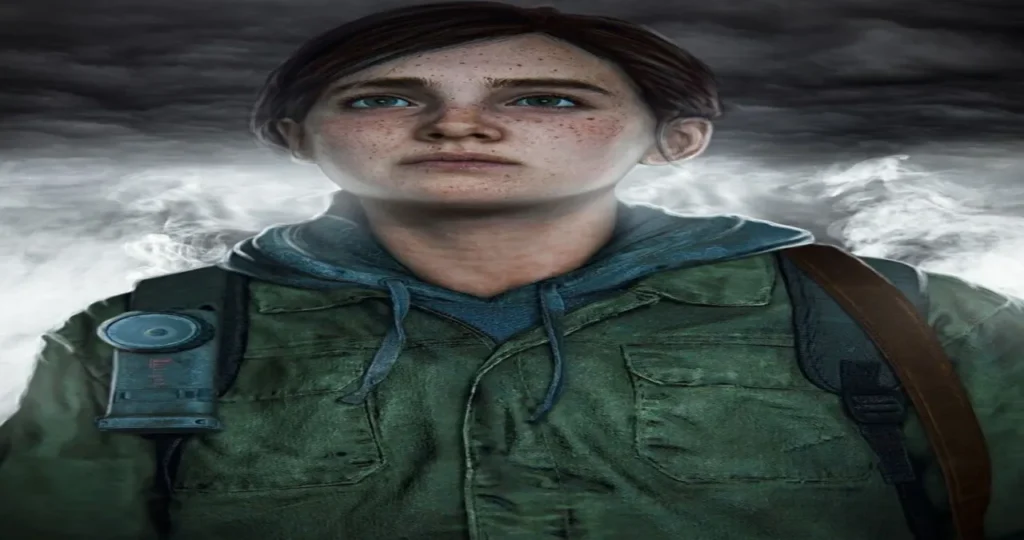Ellie The Last of Us from The Last of Us isn’t just another video game character. She’s one of those rare figures in gaming who has managed to break through the screen, lodge herself into the hearts of millions, and stand tall as a symbol of resilience, vulnerability, and humanity. For those who’ve played The Last of Us series, Ellie isn’t a character you simply control — she’s a companion, a fighter, and a person you grow with. This article will explore everything that makes Ellie such a compelling character in the gaming world, taking a close look at her story, personality, evolution, and impact.
Who is Ellie in The Last of Us?
At the center of The Last of Us lies Ellie, a young girl born into a world destroyed by a deadly fungal infection. From the moment she’s introduced, Ellie stands out — not just because of her immunity to the Cordyceps infection, but because of her fierce spirit and quick wit. Unlike many post-apocalyptic stories where characters are hardened and cynical, Ellie carries a spark of life, humor, and curiosity.
Her backstory is slowly revealed throughout the series. Ellie was born after the outbreak and has only known a world filled with danger, survival, and loss. Raised in quarantine zones and later navigating the wild and treacherous world outside, Ellie’s experiences shape her into a complex, layered character. She’s both tough and tender, guarded yet open, scared but brave. It’s these contradictions that make Ellie so uniquely compelling.
As the story progresses, Ellie transforms from a dependent teenager into a capable survivor. The player witnesses her learn, stumble, and grow stronger, especially in the first game where she journeys alongside Joel, a grizzled smuggler with a tragic past. Their relationship forms the heart of the story, evolving from a wary partnership to a father-daughter-like bond.
Ellie’s Personality and Traits
What makes Ellie so unforgettable is how vividly her personality shines through. She’s not a cookie-cutter video game heroine; Ellie is raw, real, and unapologetically herself. Her humor, sarcasm, and stubborn streak often act as armor against the brutal world she inhabits.
Ellie has an insatiable curiosity, asking Joel questions about the old world, cracking jokes, and collecting little artifacts that provide glimpses into a lost civilization. Despite the horror surrounding her, she finds moments of wonder and amusement — whether it’s reading a joke book, admiring old posters, or playing guitar. This childlike curiosity contrasts with the heavy responsibilities she shoulders.
There’s also a deeply compassionate side to Ellie. She cares for those around her, whether it’s trying to protect Joel, befriending Riley in Left Behind, or risking everything for Dina in The Last of Us Part II. Ellie’s empathy is what keeps her grounded, even as she grapples with trauma, loss, and revenge.
But Ellie isn’t without flaws. Her impulsiveness, anger, and stubbornness sometimes lead to reckless choices. These imperfections, however, only make her more relatable and authentic. Players see not a perfect hero, but a human being doing her best in an impossible world.
The Evolution of Ellie’s Character
One of the most remarkable aspects of Ellie in The Last of Us series is how she evolves between the first and second game. In the original, Ellie is fourteen — a mix of innocence and toughness, trying to make sense of the chaos around her. She relies heavily on Joel, gradually becoming more self-reliant as the story unfolds.
In The Last of Us Part II, Ellie is nineteen, older, and carrying heavy emotional scars. This game dives deeper into her psyche, exploring the lasting impact of loss, violence, and vengeance. Ellie becomes a more hardened character, driven by a relentless need for closure and justice after the death of Joel. This shift is jarring but believable, reflecting how trauma can reshape a person.
As the player navigates Ellie’s path of revenge, it becomes clear that this isn’t a simple tale of good versus evil. Ellie’s choices are morally complex, often leading her into dark, morally gray territory. She’s both a victim and a perpetrator, haunted by what she’s lost and what she’s become. This depth makes Ellie not just a character in a game, but a study of grief, anger, and the struggle to hold onto humanity.
Despite the darker turn in the sequel, glimpses of the old Ellie The Last of Us remain. Her love for Dina, her bond with Jesse, and her tenderness with animals and children remind players of the person she used to be and might still be inside. This tension between past and present adds emotional weight to her journey.

Ellie’s Relationships and Bonds
No character exists in a vacuum, and Ellie’s relationships form the backbone of her story. Her most defining bond is with Joel, a rugged survivor tasked with escorting her across a post-apocalyptic United States. What starts as an uneasy alliance slowly transforms into a deep, paternal connection. Joel becomes a father figure, and Ellie the daughter he lost.
Their relationship is one of the most powerful in gaming, built through small, quiet moments and shared dangers. Players see them laugh, argue, and protect one another, creating a bond that feels organic and earned. The ending of the first game, where Joel chooses to save Ellie at the cost of potentially saving humanity, underscores the depth of his love — and the moral ambiguity that defines the series.
In Left Behind, a prequel expansion, Ellie’s bond with her best friend Riley is explored. This chapter reveals a lighter, more carefree side of Ellie, as the two girls explore an abandoned mall, share laughs, and ultimately face tragedy. It’s also a significant moment for LGBTQ+ representation, as it confirms Ellie’s romantic feelings for Riley.
In the sequel, Ellie’s relationship with Dina takes center stage. Their connection offers Ellie a brief respite from the violence around her, showing her capacity for love and hope. Dina is one of the few people who see past Ellie’s anger and pain, providing emotional support and stability.
Throughout both games, Ellie forms numerous other bonds — with characters like Tommy, Jesse, Maria, and Lev. Each relationship reveals different facets of Ellie’s personality, from her protective instincts to her insecurities. These interactions add layers to her character, making her feel real and multi-dimensional.
Ellie’s Significance in Gaming Culture
Ellie isn’t just a character in a popular video game — she’s a cultural icon. From the moment she appeared in The Last of Us, Ellie stood apart as one of the most well-written, authentic female characters in gaming. Her strength lies not in superhuman abilities or flawless decision-making, but in her vulnerability, resilience, and humanity.
She represents a shift in how video game protagonists, especially female ones, are portrayed. Ellie isn’t oversexualized or one-dimensional. She’s not a sidekick or a damsel in distress. She’s a protagonist in her own right, with her desires, fears, and agency. This was a breath of fresh air in a medium often criticized for its lack of nuanced female characters.
The inclusion of Ellie’s LGBTQ+ identity was also groundbreaking. The Last of Us Part II presents her sexuality matter-of-factly, integrating it into the narrative without sensationalism. This kind of representation was rare in mainstream gaming, and it opened doors for more diverse stories and characters.
Ellie’s popularity has transcended the games themselves. She’s become a staple in fan art, cosplay, and online communities. Her guitar-playing, jokes, and iconic quotes have entered the gaming lexicon. Few characters have sparked as much discussion, debate, and admiration as Ellie.
Ellie in The Last of Us HBO Series
With the release of HBO’s The Last of Us adaptation, Ellie stepped into a new medium. Portrayed by Bella Ramsey, Ellie’s character retained the essence of what made her beloved while adapting to the nuances of live-action storytelling. Ramsey brought a fresh yet faithful interpretation to Ellie, capturing her fiery spirit, vulnerability, and wit.
The show offered new audiences a chance to experience Ellie’s story, while longtime fans appreciated the faithful recreation of iconic scenes and character moments. Ramsey’s performance earned critical acclaim, proving that Ellie’s appeal wasn’t confined to pixels and polygons.
Through the series, Ellie’s relationships, struggles, and evolution were further explored, shedding new light on familiar moments and adding depth to others. The adaptation demonstrated the universality of Ellie’s story — a tale of love, loss, and survival that resonates across formats.
The Legacy of Ellie in The Last of Us
Ellie’s impact on gaming and pop culture is undeniable. She set a new standard for character development, representation, and storytelling in interactive media. Players connected with Ellie not just because of the events she endured, but because of who she was — flawed, funny, angry, loving, and deeply human.
Her journey highlighted the potential of video games as a storytelling medium capable of exploring complex emotions and moral ambiguity. Ellie challenged players to reflect on their own choices, biases, and feelings about revenge, forgiveness, and what it means to survive.
Even years after the release of both games, Ellie continues to inspire discussions, fan works, and academic analysis. Her character has become a case study in how to write authentic, emotionally resonant protagonists. In a landscape filled with archetypes and clichés, Ellie stands as a beacon of what’s possible when creators prioritize depth and honesty.
Ellie’s story isn’t just about a world-ending pandemic or deadly enemies. It’s about the relationships we forge, the pain we endure, and the hope we cling to. She represents the indomitable human spirit, even in the face of unimaginable loss.
Conclusion: Why Ellie Matters
Ellie in The Last of Us is more than just a survivor. She’s a symbol of resilience, identity, and the enduring need for connection. Through her, players experienced not just the horrors of a collapsing world, but the beauty of loyalty, love, and human spirit.
Her character redefined what it means to be a video game protagonist. Ellie’s journey reminds us that strength comes in many forms — in moments of kindness, in standing up for what you believe in, and even in the willingness to let go.
The legacy of Ellie will undoubtedly endure for years to come, inspiring future characters, stories, and players. She’s proof that video games can offer more than just entertainment; they can tell powerful, moving stories about what it means to be human.
In every corner of the gaming community, Ellie’s name resonates. She’s not perfect, and that’s precisely why she matters. In the end, Ellie is us — struggling, surviving, loving, and fighting to hold onto hope in a broken world.



